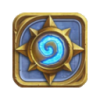Hi, i'll keep this short.
So i'm an aspiring games programmer. I'm learning Unity, C#, C++ and DirectX is the plan.
I was wandering what other things might it be good for me to have a dabble in as a games developer. This doesn't have to be coding specific also.
For example: GIMP, Blender. Maybe I can touch on these slightly just to know how they work or can be used.
What other programs/software comes to mind for someone looking to get into game development?
Also, if you can clarify for me what GIMP and Blender does exactly also ^^, sorry?
Thank you.
Edit: My main focus would be programming but as something to just have a little practice with what do you think would be beneficial for me to take a look at. Or to know how to use.










